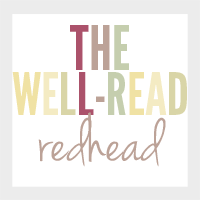Author: Aldous Huxley
Publisher: HarperCollins
Publication Date: December 12, 1932
Source: personal purchase
Summary from Goodreads:
Far in the future, the World Controllers have created the ideal society. Through clever use of genetic engineering, brainwashing and recreational sex and drugs, all its members are happy consumers. Bernard Marx seems alone harbouring an ill-defined longing to break free. A visit to one of the few remaining Savage Reservations, where the old, imperfect life still continues, may be the cure for his
distress...
Huxley's ingenious fantasy of the future sheds a blazing light on the present and is considered to be his most enduring masterpiece.
My Review:
Brave New World has been on my TBR list for a long time, because it seemed like one of those books that everyone was assigned to read in high school/college, except me. Beyond that, I had no idea what the book entailed, and it was nice going into it without any preconceived notions. Huxley has created quite an interesting version of the future--not so much post-apocalyptic as it is post-war.
After many battles the world over, society has settled upon a structure focused upon our base nature (defined here as the pursuit of pleasure, and tangent to that, consumerism). People no longer procreate through sex--all humans are "hatched" in labs, then brought up in massive nurseries, where they can be taught only the lessons that the new society deems correct. Social structure dictates that there are different classes of people (Alpha, Beta, etc), with the Alphas doing complicated, thought-focused tasks, down to lowly Epsilons who happily do the menial work (as they were conditioned to do all their lives).
I didn't expect this book to be so philosophical (not usually my forte), but Huxley presents his arguments about human nature and social control in a fairly uncomplicated way. Certainly the thing that made my wheels turn the most was the clash between the idea of simple (but socially-controlled) happiness, versus allowing people to have free will (which will certainly lead to unhappiness, in some instances). Take, for example, the lower-class (Epsilon) group. These people are genetically engineered to be physically and mentally lacking from birth. They are then conditioned to want to do menial jobs, and to be glad they don't have to do the hard work reserved for Alphas. In the end, they are happy, because they are doing exactly what they've always "wanted" to do. But does their lifelong happiness mean anything if it has been socially/governmentally enforced? Even if they don't realize it's been forced upon them, and that they're "missing out" on anything? Is it worth it to sacrifice free will (and all the things that go along with it: disappointment, heart break, passion, etc) if it means contentment for life?
There is a lot more to the novel than that, but much of the plot is based around those central questions, so get ready to have your thinking cap on. As far as how the story flows, the first part of the book is easy to fall into, because as with any dystopian world, you spend a lot of time learning the ins-and-outs of Huxley's imagined future. After the first 25% or so, I did start to think it was a little overdone (he really goes to some extremes with certain aspects of the society), but once the plot twisted a bit (after a non-socially-controlled "savage" is introduced to the story) things evened out, and I got more involved in the philsophical questions being raised.
Overall, Brave New World is a quick read, but one that is worth your time if you're into a book that will challenge your critical thinking.
What books do you feel like everyone else had to read for assignments in high school/college, but you missed out on?














It was so neat to see this review, since I read this one in high school and loved it (way more than 1984, which we read as well)! It's also interesting that you said it was more philosophical - I think that's why it appealed to me so much back then, but I didn't really realize it. I haven't re-read it, but now want to!
ReplyDeleteYou know, I was wondering if anyone had this as a high school read (vs college), because as I read it I was kind of amazed at the level of sexual content...a lot for high school kids, maybe. I'm not advocating censorship or anything (I think this is excellent discussion fodder for high schoolers, actually) but I could see parents getting up in arms about this one!
DeleteThis book, Lord of the Flies, and The Outsiders are all books I feel like everyone had to read but me. This sounds like an interesting enough read that it's worth getting to on my own at some point, but I think I'll live without the other two :)
ReplyDeleteOh man, Lord of the Flies is one of my faves!!! It is a tad gruesome though...
Delete